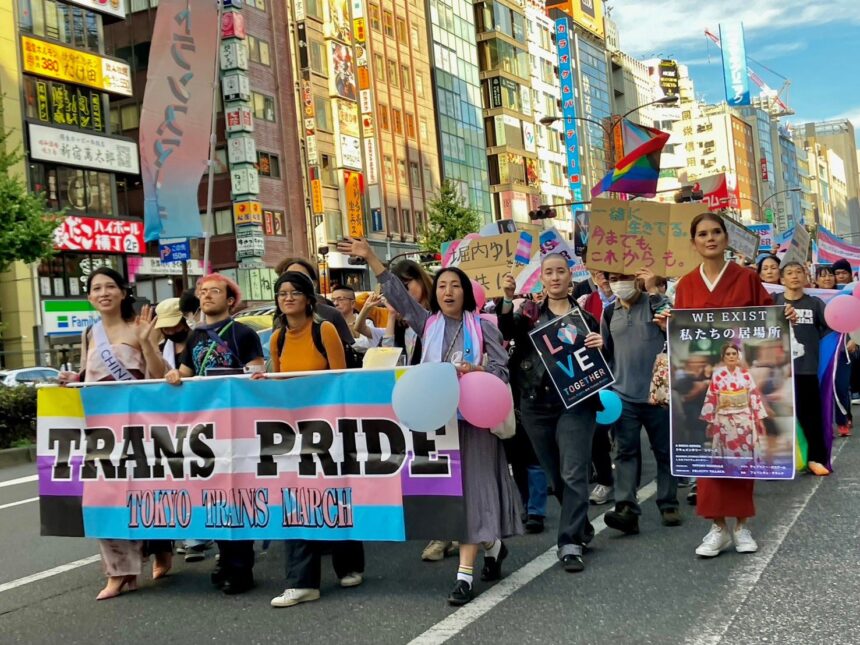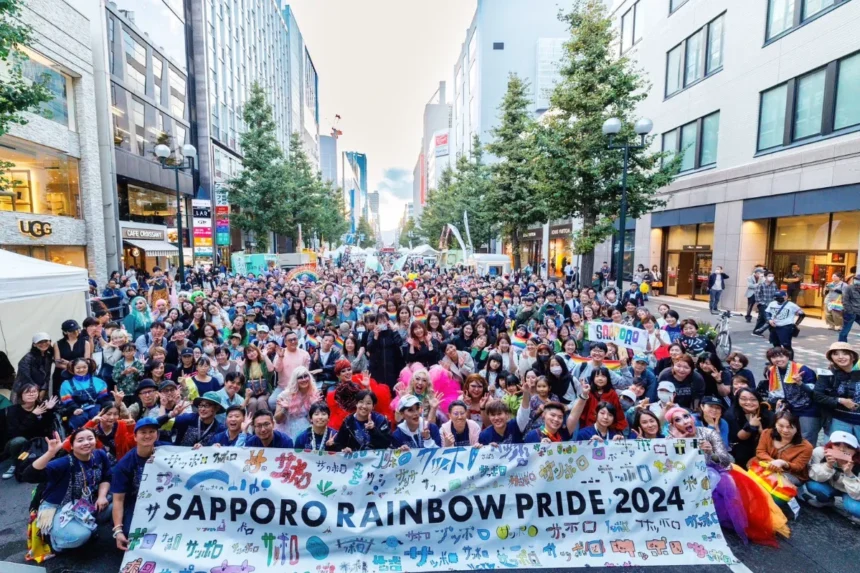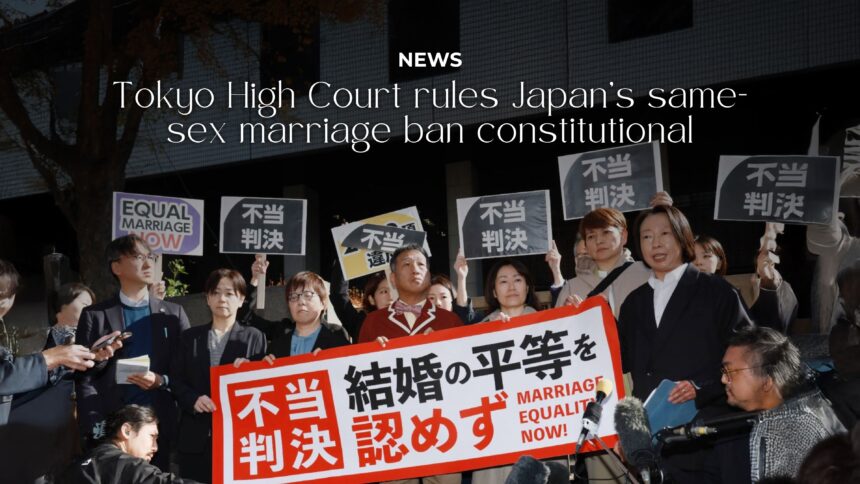How is transidentity viewed in Japan?
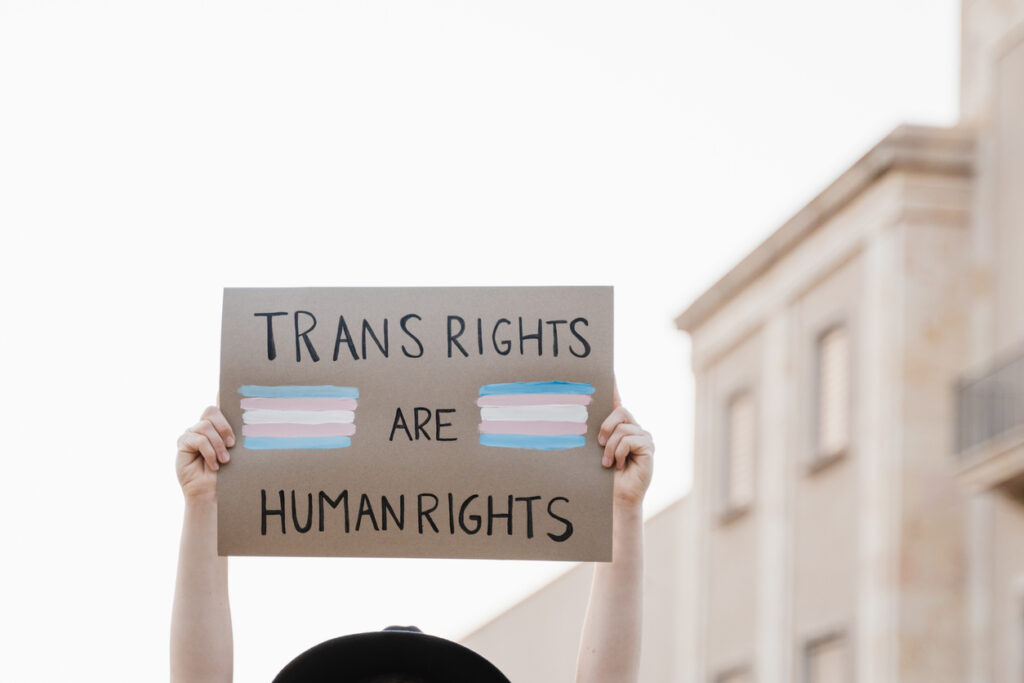
Transidentity is still widely unknown and misunderstood in Japan. The notion of “gender” is not something people think about too much: you are a man or a woman, it is your sex and your role in society, that is all.
If some people are knowledgeable about sexualities, or at least know that gay people exist, it is often mashed up together. Gay, bisexual, trans, are all the same. It is actually really common for someone coming out as gay to be asked if they want to become the opposite sex.
This can mainly be due to LGBTQ+ representation in the media. For example, one of the most famous LGBTQ+ celebrities in Japan, Matsuko Deluxe, does blur the lines a little. He is a cisgender gay male, but consistently dresses up as woman, whether it be more “draggy” or more conventional. Does that mean that all gay people are cross-dressers? Of course not, but not everyone can know that.
Speaking of, there is a large cross-dressing (usually male-to-female) culture in Japan, which does not really exist in Western countries. There is, too, a confusion to be had for onlookers. Are they gay? Are they transgender? Isn’t trans just dressing the opposite sex? When cross-dressing is its own separate thing.
Does Japan accept transgender individuals?
Japan’s law on changing genders
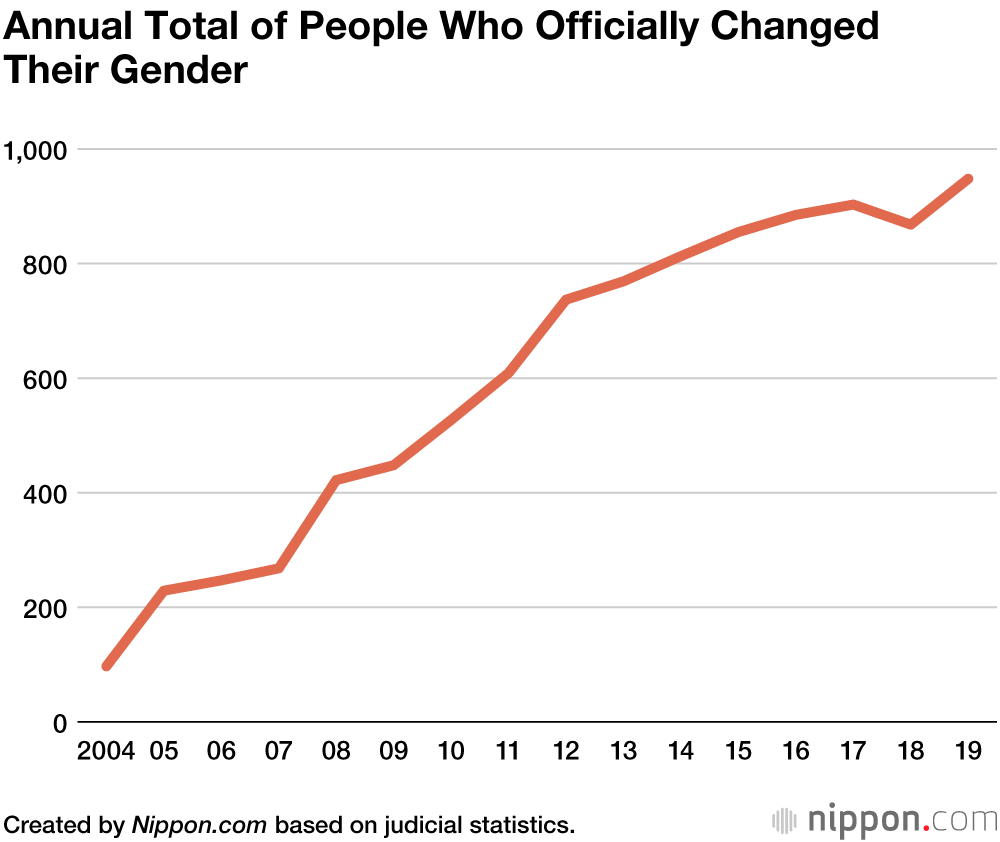
Changing genders legally is extremely difficult in Japan. According to the Gender Identity Disorder (GID) bill, an individual must:
- Be diagnosed with Gender Identity Disorder (GID)
- Be at least 18 years old
- Be unmarried
- Have no underage children
- Undergo a psychiatric evaluation and surgical sterilization
It is mainly this last condition that has people upset, and for good reason. According to this bill, individuals must undergo invasive surgical procedures and agree to never have children in order to legally change genders. This is not so different from the eugenic law that required mentally and physically disabled people to be sterilized up until 1996. This binary view also does not leave much room for non-binary individuals, and x-gender does not exist in Japan.
With that being said, some efforts are being made towards a fairer process. In 2023, the Supreme Court ruled that requiring sterilization was unconstitutional, and in 2024, a high court ruled that gender status could be changed without surgery. However, these are just individual or theoretical rulings, and not a change of the 2003 law about changing genders. Proposed changes by LGBTQ+ organizations include removing that forced sterilization, making it easier to get a GID certificate, or even changing genders as merely self-reporting.
On the applied medical side, I have heard that it is not so long or difficult to get started on Hormone Replacement Therapy (HRT) or get top surgery in Japan, simply because there are few medical guidelines around that. Note that HRT is usually at much lower doses than Western countries. Facial Feminization Surgery (FFS), hair removal, and other such services, are not so uncommon either. However, while those services are easy to get started, they may not be easy to access. Individuals must find a clinic, which is never advertised and a lot harder outside of big cities (please check out our article about medical resources for LGBTQ+ people in Japan!) Bottom surgeries are rarely conducted in Japan, and individuals prefer to go overseas for this procedure.
My personal experience
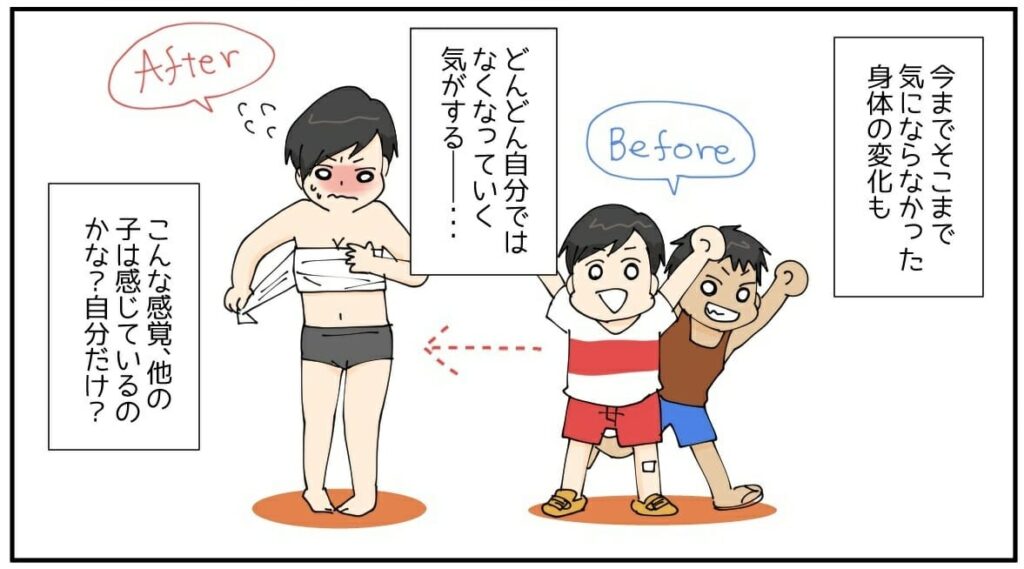
I arrived in Japan when I was just 16, and already knew that I was transgender.
Working Towards A Medical Transition
It took me many years to actually take steps towards my transition, mainly due to my age and familial ties.
Six months ago, I finally went to Jiyugaoka MC Clinic for a consultation to get top surgery (an elective double mastectomy). I was very surprised when the doctor just explained the procedure to me straightforwardly, did not even ask for a GID, or even ask me if I was trans, really. He said that we could schedule the surgery right away.
I saw that as a very positive thing, as I know that getting top surgery is a nightmare in Western countries. Although, part of me does feel a bit iffy about it, because it could lead to people making this decision on a whim (I know one person who discovered that they were trans and had surgery just the following month).
Legally Changing My Name and Gender
Changing my name and legal gender has been in my head for several years already, but it is a very long and arduous process that I have to do in France, so I just have not had the mental capacity to take care of it yet.
I do wonder how I will get Japan to recognize me as my new name and gender, pre medical transition. My propensity to always imagine the worst also makes me wonder: if I was to go to prison and my gender is legally male, would they put me in a male’s prison? That would be the end of me! I think about that a lot.
My Unique Experience In The Fashion Industry
Then, as something more specific to my own story, I worked as a fashion model for 6 years in Japan. There, too, I had an overall positive experience. I got to model menswear or gender-neutral wear in large majority, and some womenswear, which I always just saw as part of my job and not an attack on my identity. There were a few instances where my gender and sexuality came up. Once, upon receiving a remark about my binder and explaining that my heart was male (the easiest sentence I can say in Japanese to explain my transidentity, and at that, a phrasing I really love), the other person said “oh, you’re bisexual”. Well, as a matter of fact, I am, but… that wasn’t quite the point. I have also been called androgynous, which again is not wrong, but also unrelated to my gender.
No Specific Issues, But A General Feeling Of Incapacity
In conclusion, I feel like if I never got attacked or saw particular hurdles for being trans in Japan, I know that people whom I interact with on the day-to-day just consider that I am a woman. They do not even wonder if I could be trans, because they simply do not know what that is. Again, this very binary vision of gender in Japan makes it so that, pre-transition, I can only be perceived as a woman.
Transgender Awareness Week in Japan
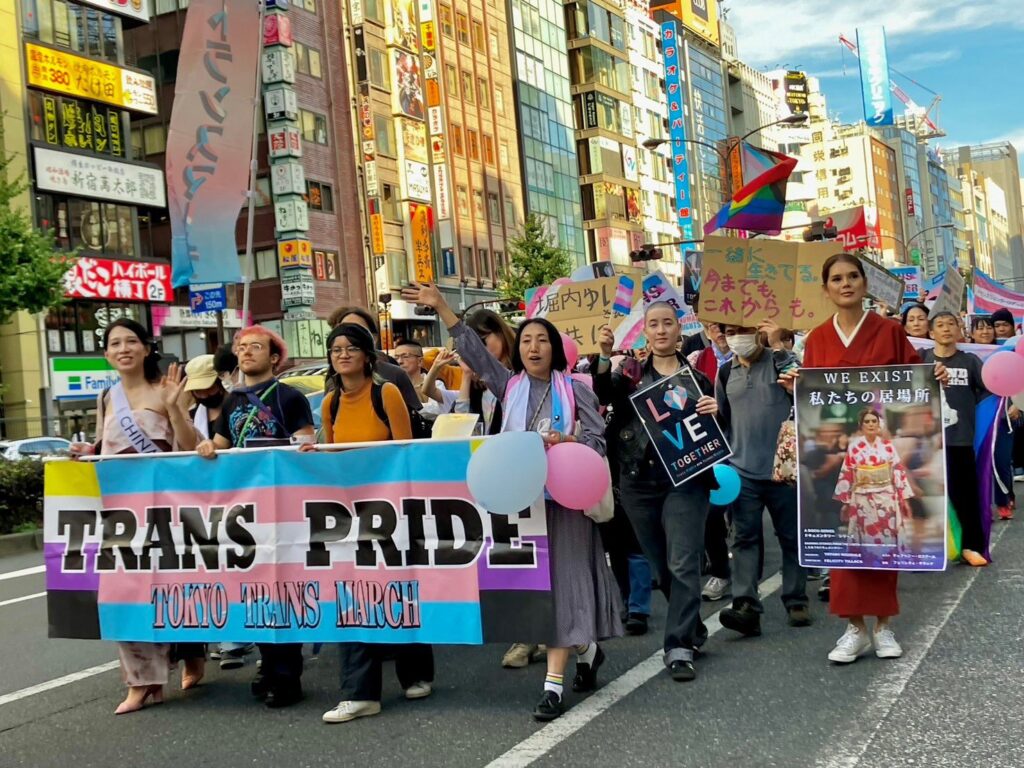
Transgender Awareness Week (TAW) is a global celebration. It aims to put the spotlight on transgender individuals and issues, and culminates in the Transgender Day of Remembrance, November 20th, which remembers people who were killed for being transgender (a very real issue in the United States).
In Japan, although TAW is not widely celebrated, a Trans March has been organized in Tokyo since 2021. Taking place on the Sunday during TAW, it is no small event, seeing 1000 marchers in 2023 and probably even more this year. The event brings visibility around transgender and non-binary issues faced by individuals in Japan, and discussions are arranged to discuss how to fix them.
Learn more about Pride celebrations around Japan!
It is truly beautiful seeing all of those individuals, transgender and cisgender, walking together to demand better living conditions. Because aside from changing genders legally, transgender also face discrimination in the workplace, in school, for housing, and more… It’s about time for change!
Where to find the transgender community in Japan
Apps and focus groups
Apps such as Bumble are a good way to meet with other English-speaking LGBTQ+ people. Simply set those parameters on your profile, and you will be able to meet other like-minded people, including transgender people.
Focus groups are another way to achieve such goals. For example, in Japan, there is a Discord server for LGBTQ+ and neurodivergent people. There, you are certain to meet your kind!
Join the Discord server: https://discord.gg/mK6Q5r9M
LGBTQ+ events
A variety of events take place around Tokyo that cater to LGBTQ+ people. A few come to mind,
Queer for Fear is a monthly event centered around watching a horror movie (usually mild). Sometimes it contains LGBTQ+ themes, but in any case, the audience is overwhelmingly LGBTQ+, including transgender people.
Check out their Instagram!
There is a bar called Black Bird Eatery in Sasazuka, which is held by two non-binary individuals. They host a variety of events, some of which are catered for non-binary and trans people.
Check out their Instagram!
Another monthly event is Queer Social, organized by Kosodate Village and taking place in Sugamo. Here, queer people eat, drink, and play board games.
Check out their Instagram!
Finally, another way is to use the nightlife to meet other transgender people. The best chance is to attend balls or drag shows, the best example of which is Kiki Ball, which takes place about every month in Tokyo and Osaka.
Check out their Instagram!
Trans March and Rainbow Pride
Finally, a good way to meet fellow transgender people is to participate in the Tokyo Trans March or other Pride events throughout the year. There, you are certain to meet other LGBTQ+ people, including transgender people.
Is Japan transgender-friendly?
There is no real hostility towards transgender people in society, but we may say there is still a lack of education and information on this topic. There is also a tradition of never wanting to change established rules, and laws are really hard to change in Japan.
However, when it comes to individuals, it is not that hard to find open-minded people to befriend, especially in the younger generation. If you just explain it to someone in simple terms, it is likely that they won’t express judgment towards you, because they simply do not have any preconceived ideas, unlike in Western countries.
